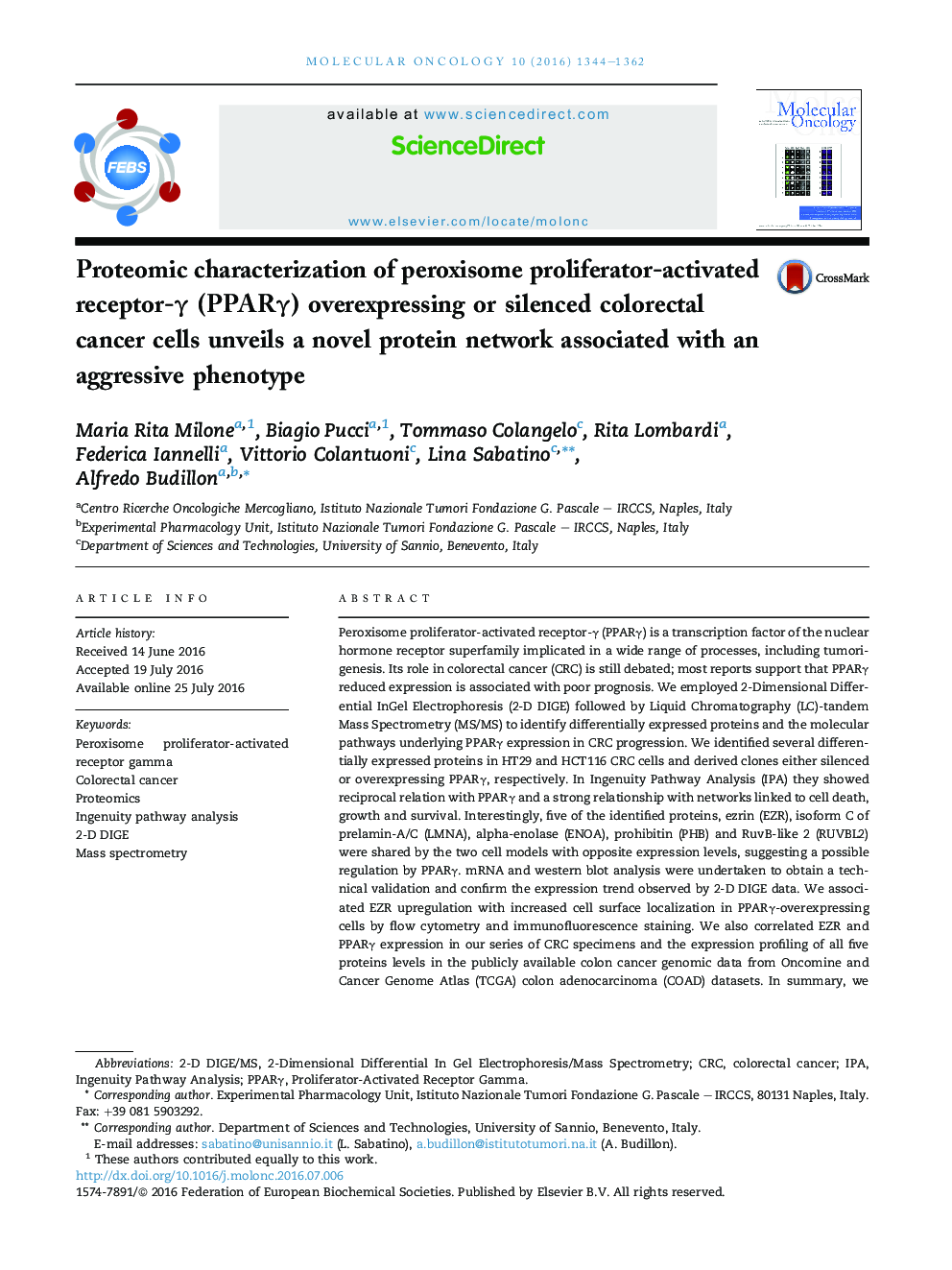| Article ID | Journal | Published Year | Pages | File Type |
|---|---|---|---|---|
| 5528643 | Molecular Oncology | 2016 | 19 Pages |
â¢PPARγ-overexpressing/silenced colorectal cancer (CRC) cells are studied by proteomics.â¢The differentially expressed proteins are part of novel PPARγ signaling pathways.â¢Ezrin, LaminA/C, α-enolase, prohibitin and RuvBlike2 strongly correlate with PPARγ.â¢These proteins correlate with tumor expression in publicly available CRC dataset.
Peroxisome proliferator-activated receptor-γ (PPARγ) is a transcription factor of the nuclear hormone receptor superfamily implicated in a wide range of processes, including tumorigenesis. Its role in colorectal cancer (CRC) is still debated; most reports support that PPARγ reduced expression is associated with poor prognosis. We employed 2-Dimensional Differential InGel Electrophoresis (2-D DIGE) followed by Liquid Chromatography (LC)-tandem Mass Spectrometry (MS/MS) to identify differentially expressed proteins and the molecular pathways underlying PPARγ expression in CRC progression. We identified several differentially expressed proteins in HT29 and HCT116 CRC cells and derived clones either silenced or overexpressing PPARγ, respectively. In Ingenuity Pathway Analysis (IPA) they showed reciprocal relation with PPARγ and a strong relationship with networks linked to cell death, growth and survival. Interestingly, five of the identified proteins, ezrin (EZR), isoform C of prelamin-A/C (LMNA), alpha-enolase (ENOA), prohibitin (PHB) and RuvB-like 2 (RUVBL2) were shared by the two cell models with opposite expression levels, suggesting a possible regulation by PPARγ. mRNA and western blot analysis were undertaken to obtain a technical validation and confirm the expression trend observed by 2-D DIGE data. We associated EZR upregulation with increased cell surface localization in PPARγ-overexpressing cells by flow cytometry and immunofluorescence staining. We also correlated EZR and PPARγ expression in our series of CRC specimens and the expression profiling of all five proteins levels in the publicly available colon cancer genomic data from Oncomine and Cancer Genome Atlas (TCGA) colon adenocarcinoma (COAD) datasets. In summary, we identified a panel of proteins correlated with PPARγ expression that could be associated with CRC unveiling new pathways to be investigated for the selection of novel potential prognostic/predictive biomarkers and/or therapeutic targets.
Graphical abstractDownload high-res image (201KB)Download full-size image
